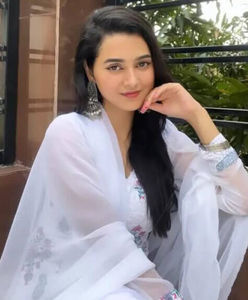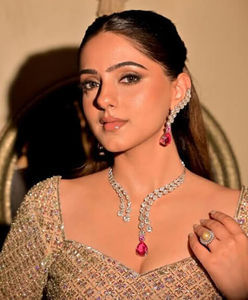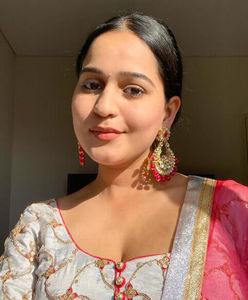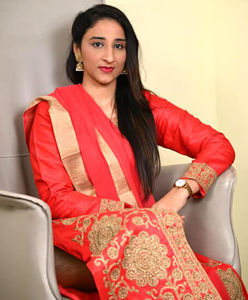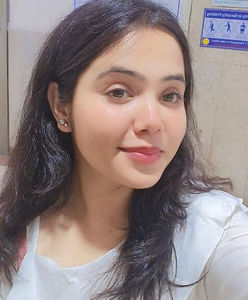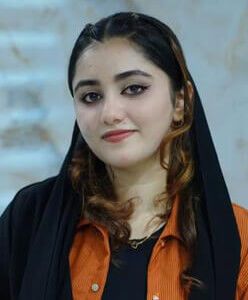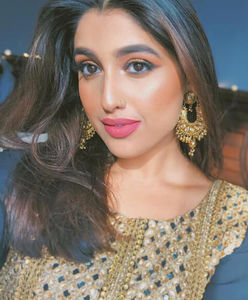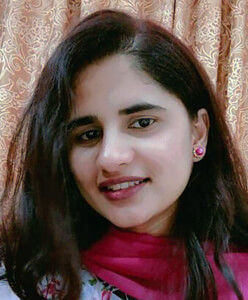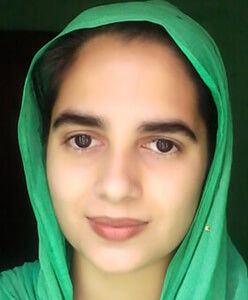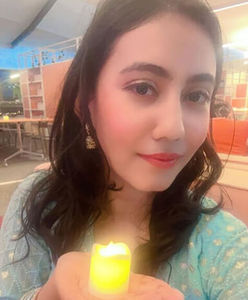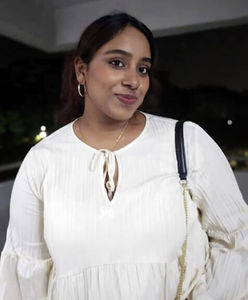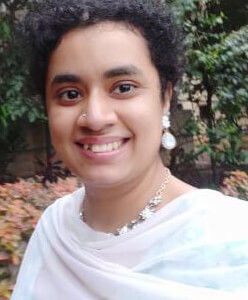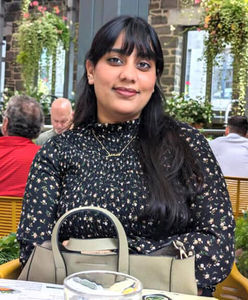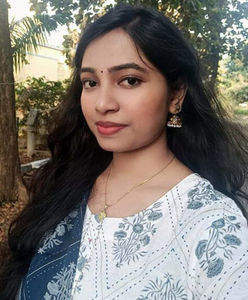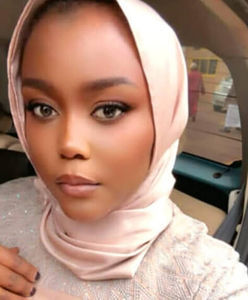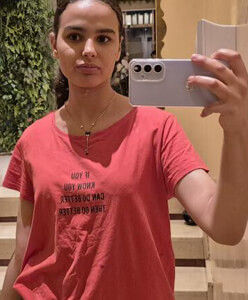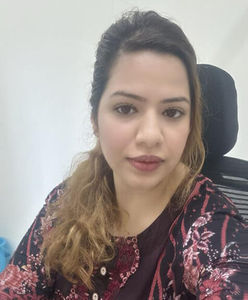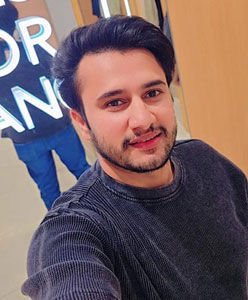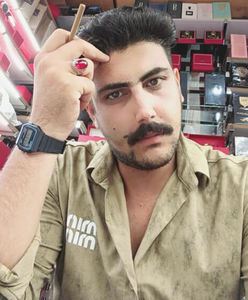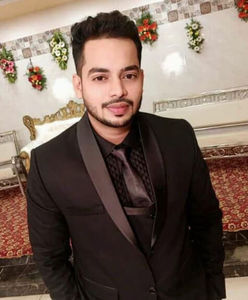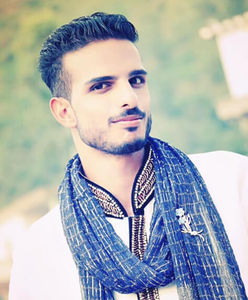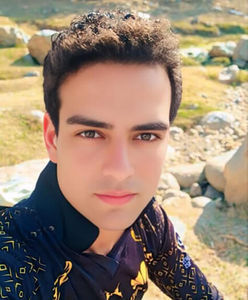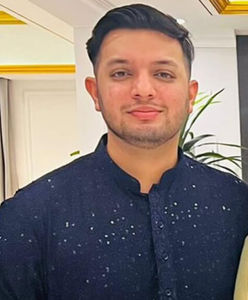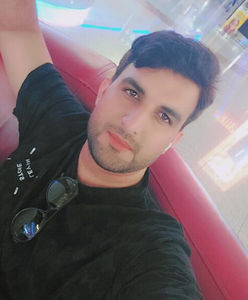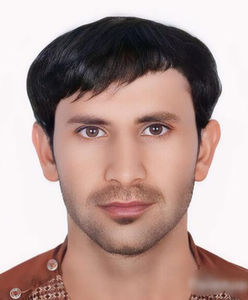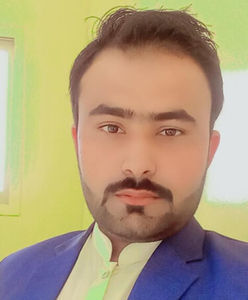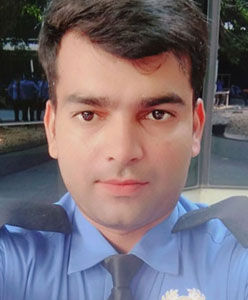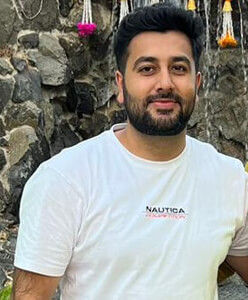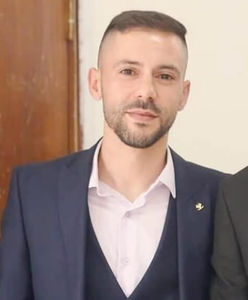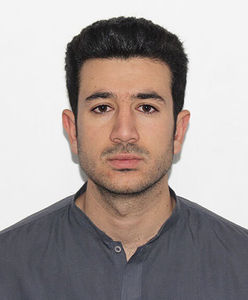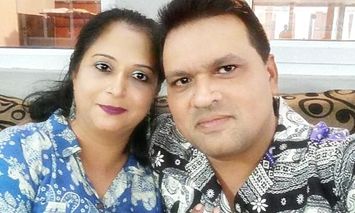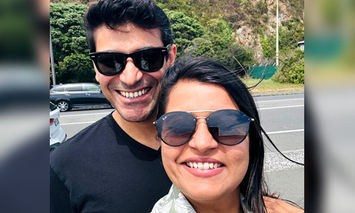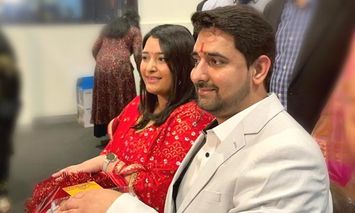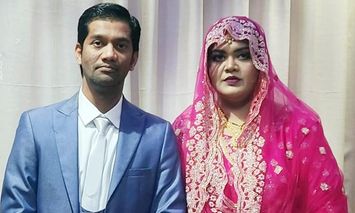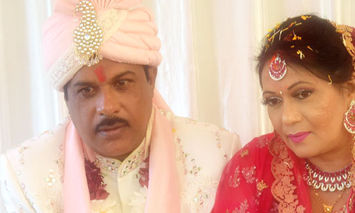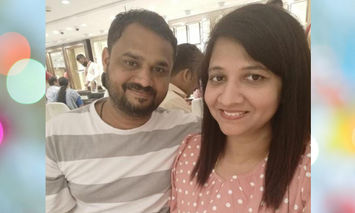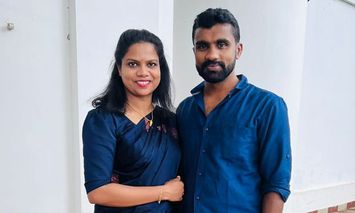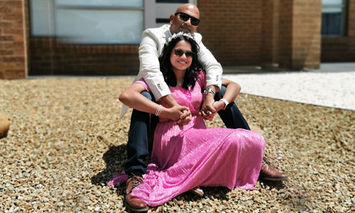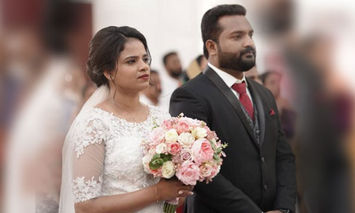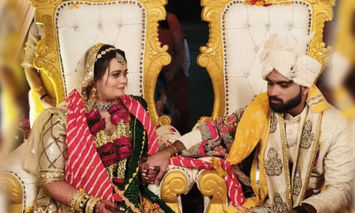-
Matrimony ID : MI-1582390
29yrs / 5' 06" (167 cm)
Muslim, Sunni Hanafi, Hindi
Spain
I am a simple girl with a good personality. I reside in a beautiful city of spain and my caste is sunni hanafi....See Full Profile
-
Matrimony ID : MI-1572700
19yrs / 5' 08" (172 cm)
Muslim, Sunni, Arabic
UK
This profile is of my Daughter who is simple and good looking. Our mother tongue is arabic and caste is sunni.She is cu...See Full Profile
-
Matrimony ID : MI-1563124

18yrs / 4' 09" (144 cm)
Muslim, Abdal-muslim, Urdu
Shivamogga, Karnataka, India
I am a simple girl with a good personality. I reside in a beautiful city of india and my caste is abdal-muslim....See Full Profile
-
Matrimony ID : MI-1549640
31yrs / 5' 07" (170 cm)
Muslim, Arain-muslim, Hindi
New York City, USA
I am currently living in usa. I am a smart and dynamic girl who respects her culture very much. I belong to a simple hin...See Full Profile
-
Matrimony ID : MI-1541818
31yrs / 5' 05" (165 cm)
Muslim, Gujjar-muslim, Hindi
Washington, USA
I am a simple girl with a good personality. I reside in a beautiful city of usa and my caste is gujjar-muslim....See Full Profile
-
Matrimony ID : MI-1534140

28yrs / 5' 04" (162 cm)
Muslim, Islam, Urdu
Not Specified, UAE
This profile is of my Daughter who is simple and good looking. Our mother tongue is urdu and caste is islam.She is curr...See Full Profile
-
Matrimony ID : MI-1507810

23yrs / 5' 02" (157 cm)
Muslim, Muslim Rajput, Hindi
Delhi, India
I am currently living in india. I am a smart and dynamic girl who respects her culture very much. I belong to a simple h...See Full Profile
-
Matrimony ID : MI-1498318
32yrs / 5' 05" (165 cm)
Muslim, Sunni, Hindi
Chicago, USA
I am a simple girl with a good personality. I reside in a beautiful city of usa and my caste is sunni....See Full Profile
-
Matrimony ID : MI-1452088

29yrs / 5' 04" (162 cm)
Muslim, sunni lebbai, Tamil
India
I am a simple girl with a good personality. I reside in a beautiful city of india....See Full Profile
-
Matrimony ID : MI-1403926
28yrs / 5' 03" (160 cm)
Muslim, Ansari, Telugu
Tukwila, USA
I am a simple girl with a good personality. I reside in a beautiful city of usa and my caste is ansari....See Full Profile
-
Matrimony ID : MI-1382238
35yrs / 5' 04" (162 cm)
Muslim, Pathan, Urdu
Qatar
I am currently living in qatar. I am a smart and dynamic girl who respects her culture very much. I belong to a simple u...See Full Profile
-
Matrimony ID : MI-1356750
29yrs / 5' 06" (167 cm)
Muslim, Other Muslim, English
Sydney, Australia
I am currently living in australia. I am a smart and dynamic girl who respects her culture very much. I belong to a simp...See Full Profile
-
Matrimony ID : MI-1307612
29yrs / 5' 02" (157 cm)
Muslim, Other Muslim, Urdu
Al Ain, UAE
I am a simple girl with a good personality. I reside in a beautiful city of uae....See Full Profile
-
Matrimony ID : MI-1153484

24yrs / 5' 05" (165 cm)
Muslim, Islam, Tamil
France
My Daughter is a smart and dynamic girl brought up with well nurtured values. She is very humble and currently living in...See Full Profile
-
Matrimony ID : MI-858902
25yrs / 5' 00" (152 cm)
Muslim, Other Muslim, Urdu
Srinagar, Jammu & Kashmir, India
This profile is of my Sister who is simple and good looking. Our mother tongue is urdu and caste is .She is currently r...See Full Profile
-
Matrimony ID : MI-1572308

19yrs / 5' 07" (170 cm)
Muslim, Vaishya, Tamil
Shah Alam, Malaysia
I am a simple girl with a good personality. I reside in a beautiful city of malaysia....See Full Profile
-
Matrimony ID : MI-1559018

25yrs / 5' 03" (160 cm)
Muslim, Sunni, Hindi
Sydney, Australia
Hello I'm glad you are interested in my daughter's profile. she has completed her master in computer science with soft...See Full Profile
-
Matrimony ID : MI-1552322
25yrs / 5' 08" (172 cm)
Muslim, NIL, Tamil
Singapore
I am currently living in singapore. I am a smart and dynamic girl who respects her culture very much. I belong to a simp...See Full Profile
-
Matrimony ID : MI-1538022

29yrs / 5' 06" (167 cm)
Muslim, Sayed, Urdu
Gurgaon, Haryana, India
Hello my name is Sarah Muneem. I have completed her M.A. in Literary Arts Hons from Ambedkar University Delhi and my...See Full Profile
-
Matrimony ID : MI-1533946
30yrs / 5' 03" (160 cm)
Muslim, Sunni, Hindi
Canada
My Daughter is a smart and dynamic girl brought up with well nurtured values. She is very humble and currently living in...See Full Profile
-
Matrimony ID : MI-1532412

32yrs / 5' 03" (160 cm)
Muslim, Sunni, Bengali
Mumbai, Maharashtra, India
This profile is of my Daughter who is simple and good looking. Our mother tongue is bengali and caste is sunni.She is c...See Full Profile
-
Matrimony ID : MI-1527616
28yrs / 5' 04" (162 cm)
Muslim, What do mean, English
Uganda
This profile is of my Daughter who is simple and good looking. Our mother tongue is english.She is currently residing i...See Full Profile
-
Matrimony ID : MI-1513794
18yrs / 5' 06" (167 cm)
Muslim, Arabs, Arabic
Morocco
I am a simple girl with a good personality. I reside in a beautiful city of morocco and my caste is arabs....See Full Profile
-
Matrimony ID : MI-1509812

30yrs / 5' 04" (162 cm)
Muslim, Sunni Hanafi, Persian
Cuddapah, Andhra Pradesh, India
I am a simple girl with a good personality. I reside in a beautiful city of india and my caste is sunni hanafi....See Full Profile
-
Matrimony ID : MI-1560822
30yrs / 5' 07" (170 cm)
Muslim, Sunni, Urdu
Bayan, Kuwait
My Brother is a smart and dynamic boy brought up with well nurtured values. He is very humble and currently living in ku...See Full Profile
-
Matrimony ID : MI-1558660
30yrs / Above 6' (182 cm)
Muslim, 112, Arabic
Iraq
I am a simple boy with a good personality. I reside in a beautiful city of iraq....See Full Profile
-
Matrimony ID : MI-1556740

28yrs / 6' 00" (182 cm)
Muslim, Pathan, Pashto
Dhahran, Saudi Arabia
I am currently living in saudi arabia. I am a smart and dynamic boy who respects his culture very much. I belong to a si...See Full Profile
-
Matrimony ID : MI-1548244

27yrs / 5' 11" (180 cm)
Muslim, Shaik Mohammad, Urdu
India
My Son is a smart and dynamic boy brought up with well nurtured values. He is very humble and currently living in india....See Full Profile
-
Matrimony ID : MI-1547476
29yrs / 5' 07" (170 cm)
Muslim, Lebbai, Tamil
Dubai, UAE
I am a simple boy with a good personality. I reside in a beautiful city of uae and my caste is lebbai....See Full Profile
-
Matrimony ID : MI-1546246

28yrs / 6' 00" (182 cm)
Muslim, Sunni, Hindi
Chicago, USA
I am a simple boy with a good personality. I reside in a beautiful city of usa and my caste is sunni....See Full Profile
-
Matrimony ID : MI-1545566
25yrs / 5' 06" (167 cm)
Muslim, Choudhary-muslim, English
Pontian Kechil, Malaysia
I am currently living in malaysia. I am a smart and dynamic boy who respects his culture very much. I belong to a simple...See Full Profile
-
Matrimony ID : MI-1543904
25yrs / 5' 11" (180 cm)
Muslim, Afghan, Persian
Iran
This profile is of my Son who is simple and good looking. Our mother tongue is persian and caste is afghan.He is curren...See Full Profile
-
Matrimony ID : MI-1540486
29yrs / 5' 06" (167 cm)
Muslim, 5000, Pashto
Dubai, UAE
My Friend is a smart and dynamic boy brought up with well nurtured values. He is very humble and currently living in uae...See Full Profile
-
Matrimony ID : MI-1537940
28yrs / 4' 04" (132 cm)
Muslim, Dawar, Urdu
Al Ain, UAE
I am a simple boy with a good personality. I reside in a beautiful city of uae....See Full Profile
-
Matrimony ID : MI-1537434
29yrs / 5' 09" (175 cm)
Muslim, Sunni, Urdu
Sharjah, UAE
This profile is of my Son who is simple and good looking. Our mother tongue is urdu and caste is sunni.He is currently ...See Full Profile
-
Matrimony ID : MI-1515828

35yrs / 5' 07" (170 cm)
Muslim, Urdu, Urdu
Melbourne, Australia
This profile is of my Son who is simple and good looking. Our mother tongue is urdu.He is currently residing in austral...See Full Profile
-
Matrimony ID : MI-1509912
28yrs / 5' 10" (177 cm)
Muslim, Pathan, Pashto
Dubai, UAE
I am a simple boy with a good personality. I reside in a beautiful city of uae and my caste is pathan....See Full Profile
-
Matrimony ID : MI-1509852
31yrs / 5' 06" (167 cm)
Muslim, Abdal-muslim, Bengali
Dubai, UAE
My Relative is a smart and dynamic boy brought up with well nurtured values. He is very humble and currently living in u...See Full Profile
-
Matrimony ID : MI-1508082
32yrs / 5' 03" (160 cm)
Muslim, Afghanistan, Arabic
Egypt
I am currently living in egypt. I am a smart and dynamic boy who respects his culture very much. I belong to a simple ar...See Full Profile
-
Matrimony ID : MI-1474780
21yrs / 4' 09" (144 cm)
Muslim, Pathan, Urdu
Sharjah, UAE
I am a simple boy with a good personality. I reside in a beautiful city of uae....See Full Profile
-
Matrimony ID : MI-1439360
21yrs / 5' 06" (167 cm)
Muslim, Other Muslim, Bengali
Kota Kinabalu, Malaysia
I am a simple boy with a good personality. I reside in a beautiful city of malaysia....See Full Profile
-
Matrimony ID : MI-1436060

28yrs / 5' 07" (170 cm)
Muslim, Sunni Malik, Hindi
Jaipur, Rajasthan, India
I am a simple boy with a good personality. I reside in a beautiful city of india and my caste is sunni malik....See Full Profile
-
Matrimony ID : MI-1391178

31yrs / 5' 10" (177 cm)
Muslim, Other Muslim, Arabic
Algeria
I am a simple boy with a good personality. I reside in a beautiful city of algeria....See Full Profile
-
Matrimony ID : MI-1383356
29yrs / 4' 05" (134 cm)
Muslim, Muslim Jat, English
Dubai, UAE
I am a simple boy with a good personality. I reside in a beautiful city of uae....See Full Profile
-
Matrimony ID : MI-1380004
30yrs / 5' 10" (177 cm)
Muslim, Malik-muslim, Punjabi
Dubai, UAE
I am currently living in uae. I am a smart and dynamic boy who respects his culture very much. I belong to a simple punj...See Full Profile
-
Matrimony ID : MI-1377116

27yrs / 5' 06" (167 cm)
Muslim, Sunni Hanafi, Urdu
Sydney, Australia
My Son is a smart and dynamic boy brought up with well nurtured values. He is very humble and currently living in austra...See Full Profile
-
Matrimony ID : MI-1371940
31yrs / 5' 08" (172 cm)
Muslim, Baidya-muslim, Arabic
Palestine
I am currently living in palestine. I am a smart and dynamic boy who respects his culture very much. I belong to a simpl...See Full Profile
-
Matrimony ID : MI-1369824

27yrs / 5' 10" (177 cm)
Muslim, Hanafi, Persian
Afghanistan
I am currently living in afghanistan. I am a smart and dynamic boy who respects his culture very much. I belong to a sim...See Full Profile
Premium Brides & Grooms
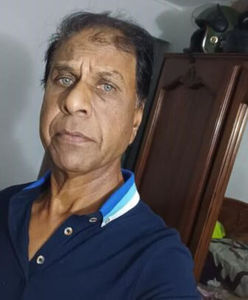
Profile ID : MI-1166075
67yrs / 5' 7", Male, Muslim, Sunni, English, Curepipe, Mauritius

Profile ID : MI-1280202
36yrs / 5' 10", Male, Muslim, Sayed, Urdu, Riyadh, Saudi Arabia


